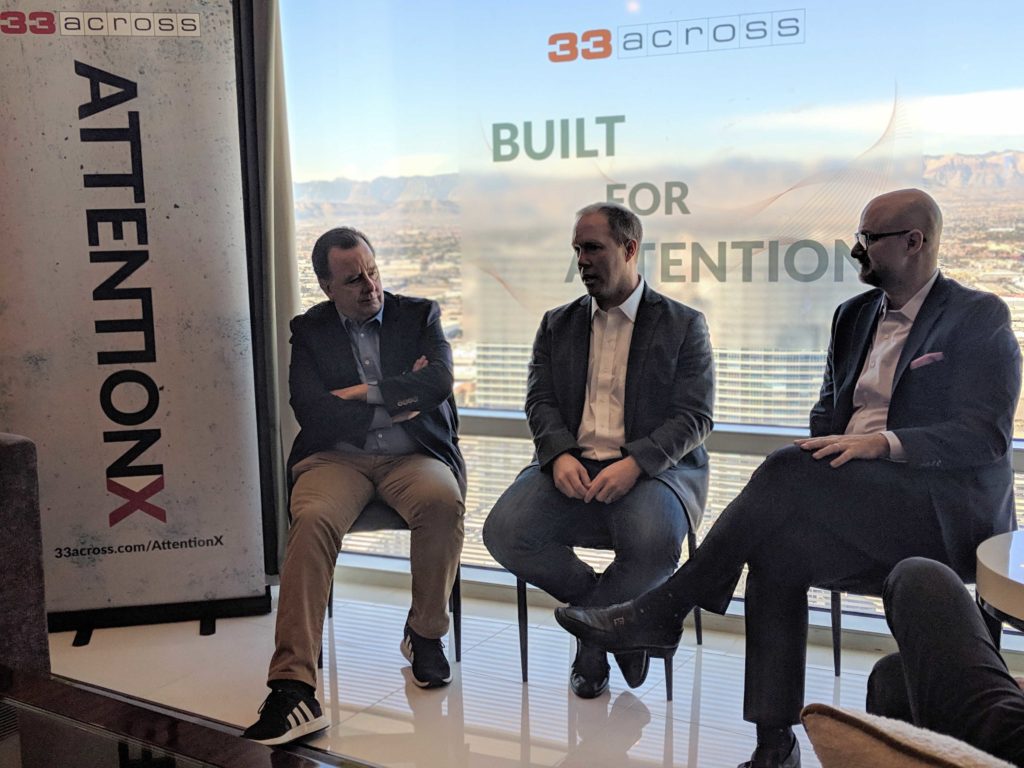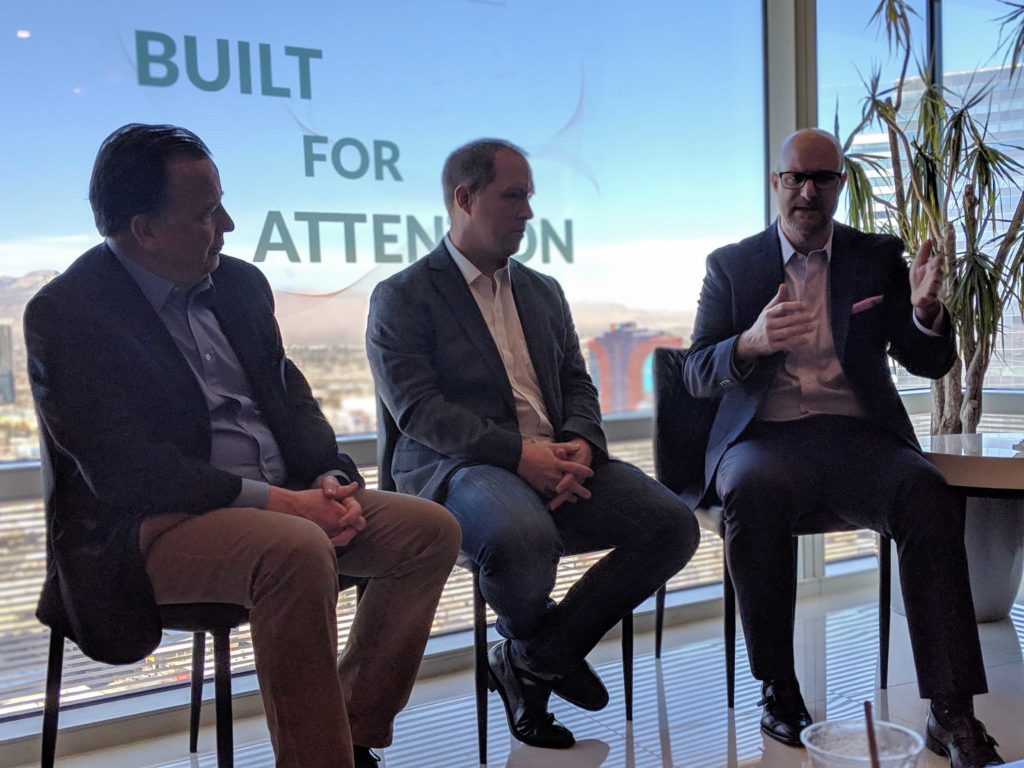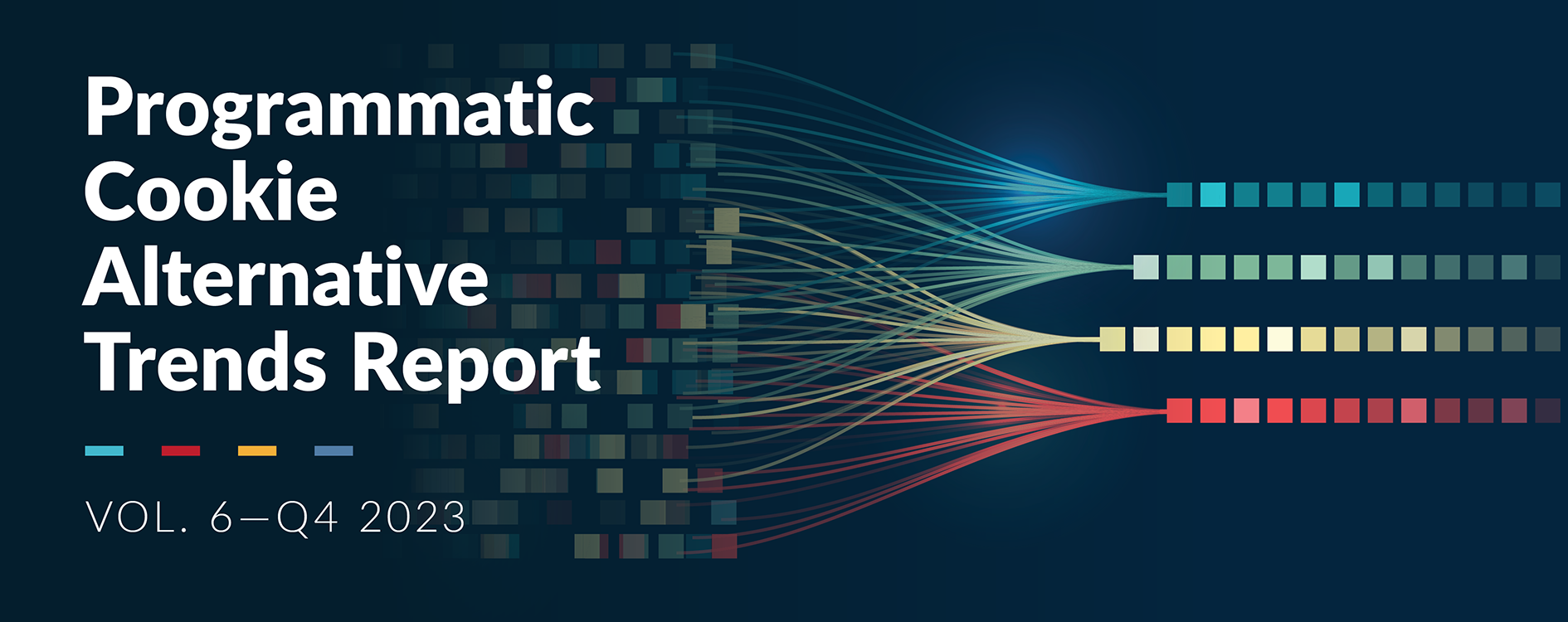Last week we were fortunate enough to host a fantastic panel of industry experts as part of our Rejuvenation Roundtable and Brunch event during CES. Since our room at the Aria was a safe distance from the smart homes and self-driving cars at the convention center, we decided to get right to the heart of the issue that seemed to be on everyone in the ad industry’s mind: Are we headed for a recession, and if so, what does that mean for the programmatic value chain?
Our speakers didn’t have a crystal ball, but Mediamath Co-Founder & SVP Greg Williams, Kelly Newman Ventures CEO Mike Kelly, and our own CEO Eric Wheeler collectively brought over three decades of experience in media and advertising sales at companies like AOL, The Weather Company and Unruly to the conversation.
The biggest takeaway?
Regardless of whether we’re headed into a recession, there’s still plenty of opportunity to sustain a healthy advertising technology business — so long as you’re able to demonstrate that you’re delivering real value in a way that makes sense to your customers.

1. Don’t assume that the walled gardens will win
The Google and Facebook “duopoly” gobbles up a large portion of the global digital ad market — and that’s not going to change.
But as Greg Williams noted: “Hard times often make marketers reassess how they do everything, and in this [round of] reassessment, I think we’ll start to see brand marketers and global holding companies question why they’re giving all of this [data] to them. Why should Google and Facebook be getting it all?”
And with increased scrutiny on privacy and data protection from regulators around the world, challengers can potentially capture more spend by highlighting their ability to deliver audience insights while keeping user (and publisher) data safer than Facebook or Google might.
2. Even fewer, better partners
Whether it’s publishers slashing the “ad tech tax,” or buyers pushing forward with supply path optimization (SPO), an economic downturn will likely just accelerate a process that’s been in play for the last 18 months.
“Everyone will get less [in a recession], but the companies that solve real problems, have real, satisfied customers, and a real revenue stream will get through it,” Mike Kelly said.
3. Expect new performance benchmarks and attribution models
Will the recession finally get us beyond last-click attribution? Probably not, but the focus on proving value will “likely warrant better approaches” to tying factors like viewability and attention to actual sales, according to our own Eric Wheeler.

Still, these new benchmarks and models for developing them will likely need to be co-created with marketers and publishers.
“Marketers have been asking for ROI [on advertising and media spend] forever,” Kelly said. “Assuming they’ll start making decisions based on [ROAS metrics] presumes that there’s a wealth of knowledge and capability on the buy side that hasn’t really been shown yet.”
4. Be a partner that helps your customers navigate this transition
When marketers do tighten their budgets, publishers (and thus publisher technology partners) will fall into one of two buckets: Must-haves and marginals. Being an actual partner is what keeps a company out of the marginal category.
“A recession isn’t going to change the fact that customers will continue to spend more time with digital, and there’s an $850 billion [ad market] for the taking as they do,” Kelly said. “Marketers follow eyeballs, and those eyeballs are all in digital. So connecting yourself to the future of how your customer is going to do business is going to be a better bet than focusing solely on solving [a problem like] last-click ROI.”
Williams agreed: “We need to think longer than these 6 to 12 month budget cycles and build for the next 5 and 10 years. The real opportunity [to partner with publishers] is to help these execs do their job, which in many cases, is still helping their entire company transition to digital.”
It may be too soon to tell whether we’re in for a hard recession or just a minor ad spend pullback, but one thing is clear: When it comes to programmatic, the companies that truly align with the needs of publishers and brands — offering them sustainable, measurable and transparent value — are the ones that will weather the storm.








